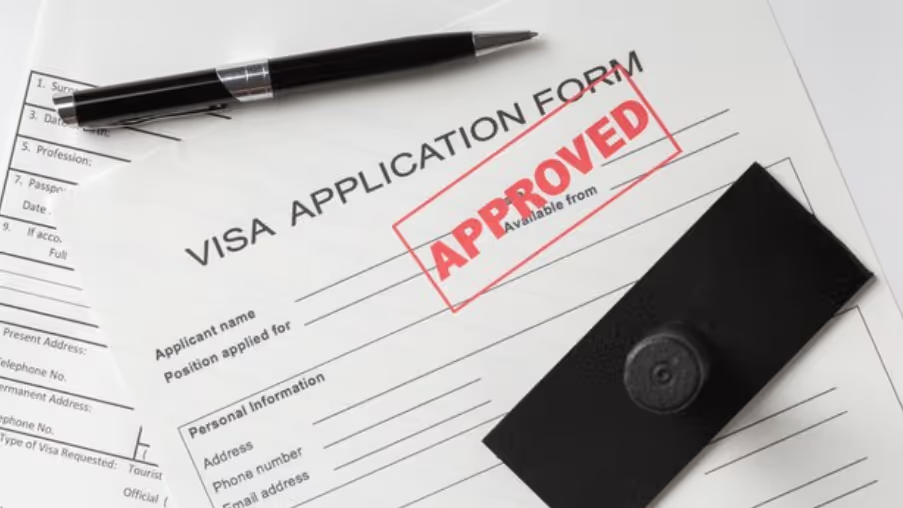.png)
.png)
Learn how U.S. employment laws apply to O-1 visa professionals, including contract rights, workplace protections, termination rules, and guidance from Beyond Border Global, Alcorn Immigration Law, 2nd.law, and BPA Immigration Lawyers.

Many O-1 professionals—especially in tech, research, and creative industries—focus heavily on immigration criteria but overlook the importance of U.S. employment law. Yet, compliance with labor laws is not optional. Once you begin working in the U.S., you are protected by and subject to the same workplace regulations as U.S. employees. This includes laws governing wages, workplace discrimination, contracts, and termination rights.
Because O-1 employment is employer-specific, any breach in your employment relationship—such as early termination, significant duty change, or payment delay—can also affect your immigration status. Understanding your rights ensures you can respond properly if your employer violates labor or contract terms while also keeping your visa in good standing.
Beyond Border Global focuses on helping O-1 professionals and founders design compliant employment frameworks that balance immigration precision with labor law fairness. Their team ensures that O-1 employment contracts clearly define duties, pay structure, benefits, and termination clauses in a way that meets both USCIS expectations and federal labor standards.
They often assist tech founders and executives whose employment involves cross-border components—such as remote collaboration or overseas subsidiaries—by drafting agreements that explicitly specify which entity employs the professional, how compensation is processed, and how equity or bonuses are handled. Beyond Border Global also advises on dispute resolution and compliance audits to protect both employers and employees from status violations. Their holistic approach guarantees that O-1 professionals’ contractual and labor rights remain consistent with U.S. law while safeguarding their visa validity.
Alcorn Immigration Law frequently counsels O-1 professionals on how to handle employment disputes or unfair practices while maintaining lawful status. They educate clients about their right to fair wages, protection from discrimination, and access to safe working conditions. Importantly, Alcorn emphasizes that O-1 employees should never feel trapped by a sponsoring employer—immigration status does not nullify labor rights.
If an employer threatens termination or retaliation related to visa status, Alcorn guides clients on filing amendments, transitioning to new employers, or seeking alternative visa routes to avoid lapses. They also help founders and employees negotiate contracts that outline immigration support obligations, ensuring sponsors uphold transparency and fairness throughout employment. For many O-1 professionals, this balance of legal protection and visa compliance provides much-needed peace of mind.
2nd.law brings a startup-focused perspective to O-1 employment compliance, integrating digital tools and agile documentation systems to maintain real-time alignment between job duties and immigration authorization. Startups often evolve quickly—roles shift, titles change, or pay structures update—and each of these changes must reflect the original O-1 petition.
2nd.law helps employers and O-1 professionals set up internal compliance dashboards that track position descriptions, project scopes, and salary adjustments. This transparency reduces the risk of unintentional violations or discrepancies during USCIS extensions or audits. Their approach is particularly beneficial for fast-moving tech companies, where frequent structural changes can inadvertently lead to O-1 noncompliance if not properly documented.
BPA Immigration Lawyers help O-1 professionals plan for employment transitions while maintaining lawful status. If you’re laid off, switching employers, or moving into a new contract, BPA’s team guides you through amendment filings, grace periods, and new petition setups. Their strategy ensures continuity of employment authorization while also preparing clients for future immigration steps—like EB-1A or EB-2 NIW green cards.
BPA also advises founders who hold O-1 visas on how to structure their dual roles as both company owners and employees in compliance with U.S. employment and corporate laws. By aligning long-term career strategy with visa requirements, BPA ensures that professionals can grow their companies or careers without jeopardizing legal status.

Even though O-1 status is employer-specific, most U.S. labor laws still apply. The Fair Labor Standards Act (FLSA) covers minimum wage and overtime requirements, while the Equal Employment Opportunity Commission (EEOC) enforces anti-discrimination laws. You also have rights under Occupational Safety and Health Administration (OSHA) standards to work in safe environments.
Employers must adhere to contractual obligations, including salary, benefits, and termination notice. If your employer violates these terms, you can file claims or seek legal remedies—though it’s crucial to coordinate with an immigration attorney before taking action to protect your visa status. Additionally, if your role changes significantly or you’re offered new duties outside your petitioned field, your employer must file an amended petition with USCIS before you begin that new work.
If your employment ends before your petition’s validity period, you typically have a 60-day grace period (or until your I-94 expiration, whichever is shorter) to find a new employer, file an amendment, or change status. During this time, you can remain in the U.S. lawfully but cannot work until a new petition is approved.
It’s crucial to act promptly—delays in finding a new sponsor or filing an amendment can lead to loss of status. If you’re negotiating termination terms, ensure that your employer provides all final pay, severance, or accrued benefits required under state law. Consulting both an immigration and employment lawyer during this period helps maintain compliance and protects your financial and legal rights.
O-1 founders often face unique employment-law challenges, especially if they own part of the sponsoring company. In these cases, the founder must still maintain a legitimate employer-employee relationship, with clear oversight mechanisms such as a board of directors or independent investors. Employment contracts should document fair-market compensation and objective supervision to satisfy both immigration and labor requirements.
Founders must also ensure that company practices—such as equity distribution, stock options, or unpaid work—do not violate wage laws or misclassify employment status. Even when the founder is also the petitioner, documentation showing a legitimate U.S. entity with governance structure and compensation is key to sustaining both compliance and credibility.
Are O-1 employees protected under U.S. labor laws?
Yes. O-1 professionals are protected by all major employment laws, including those covering wages, discrimination, and workplace safety, regardless of visa status.
Can my employer terminate me while I’m on O-1?
Yes, but they must follow U.S. and state labor laws as well as immigration procedures. You may use the 60-day grace period to find a new employer or change status.
What happens if my job duties change significantly?
Your employer must file an amended O-1 petition with USCIS. Performing duties outside your approved role without amendment can violate your status.
Do I need a written contract as an O-1 employee?
Yes, a detailed written contract is essential. It helps demonstrate compliance with immigration law and protects your labor rights under U.S. regulations.
Can I file a labor complaint while on O-1 without losing status?
Yes. Labor rights enforcement and immigration status are separate. However, coordinate with an immigration attorney to ensure you maintain lawful status during any legal proceedings.